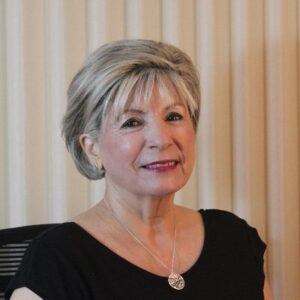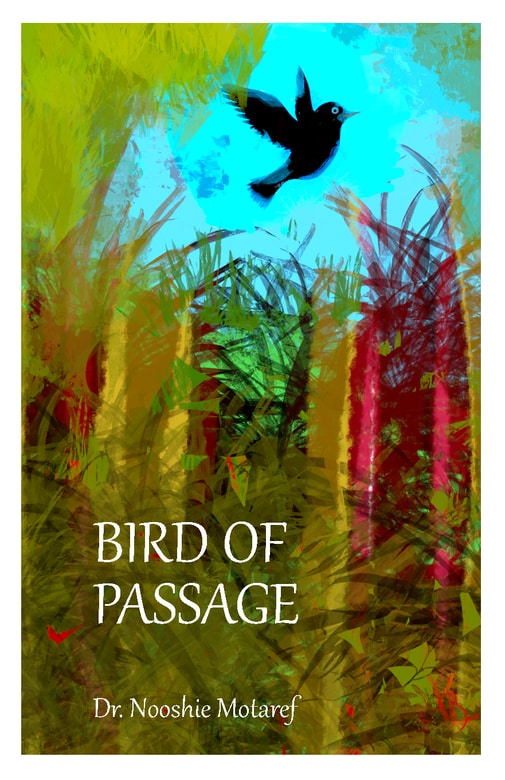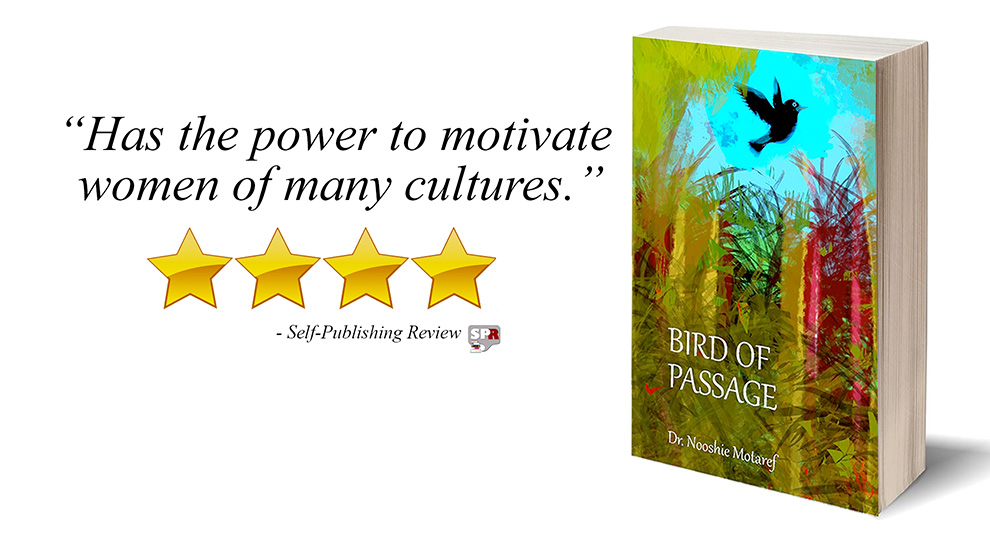
She has taught university courses on humanities, literature, and critical thinking. In addition, she is certified by the Conflict Resolution Program Act to promote Peacemaking efforts.
In March of 2014, she presented one of her articles, “Women and Islam,” for a conference, Women and Education, at Oxford University in Oxford, England. She frequently gives speeches on several subjects, such as “Women and Islam,” “Gist of Islam,” “Sufism,” “The Importance of Fairytales,” and “Folktales in Modern Times.”
Tell us about your book.
Bird of Passage, a historical fiction, flows like a dramatic tapestry, skillfully designed and displayed. This is a fascinating account of a woman, Mitra, born in Iran, who moves through the world looking for love, spiritual healing, and an understanding of what has happened to her motherland.
Wherever Mitra goes, she finds adventure, insecurity, romance, danger, and disappointment. Yet her inner strength remains honed to the tasks that face her. Her namesake, from Indo-Persian mythology, is a wise woman who speaks truth, “with a thousand ears… ten thousand eyes.” This fortitude will be especially needed, as when following the ascension to power of the Khomeini regime in Iran. As seen through Mitra’s perceptions, the author explores in depth the differences between the Eastern and Western culture, history, and chaos of her homeland.
The dynamic themes so meticulously parsed will inevitably raise significant questions for American readers about the US, and its actions in the worldwide political panorama, and be challenged to carefully consider the dilemma of those who, dominated by an oppressive government, are forced to express loyalty to leaders they have not chosen. It strikes an uplifting balance in the narrative, stressing the importance of listening to one’s inner voice.
In a time of global upheaval, Bird of Passage is not only beautifully told, but significant for a wide range of readers, as it meshes romance, intrigue, scholarly wisdom, and the lively, credible feelings of a woman of the world poring over her proper place in it. Mitra’s saga, imbued with cinematic intensity, has the power to reach, engage, and motivate the readers of many cultures and convictions.
Why did you want to write a book?
I have written other books, Land of Roses and Nightingales, and Tapestries of the Heart: Four Women, Four Persian Generations. The latter, a precedent to Bird of Passage, is the experiences of Mitra in Iran as a professor. It stands out as a genuine representation of the cycle of life. Throughout the generations, these women lived, loved, and fought for what they believed in. Even though it was a struggle, they battled and endured when the odds were almost completely against them. Bird of Passage depicts Mitra’s adventures in the West.
The character of Mitra is very much based on my life. I fled Khomeini’s government, stranded in Switzerland, and settled in America. I have gone through many challenging life experiences, unlike many women from the Middle East. In addition, my main purpose is to familiarize the Westerners with the upheavals of anyone who leaves his or her home country. In a realistic way, I wanted to show how American foreign policy has been affecting developing countries; notably in the Middle East. The Middle Easterners are like a willow tree caught in the storm, whether to abide by a dictatorship of their regime, rebel against it, or choose the uncertainty and sometimes accept the perils of the Western World.
Another important question in my mind that I’ve brought on and off in Bird of Passage is: Is it ever possible for the East and the West to unite in peace?

The traditional publication is crowded, the agents do not have time, and for some novels like mine, time is of the essence. Now, with the US pulling out of Afghanistan is the time for my book, not a few years later.
What tools or companies did you use, and what experience did you have?
A3D Impressions, LLC – the staff pays attention to the details, and my book gets individual attention.
Would you self-publish again?
Absolutely!
What do you think are the main pitfalls for indie writers?
The marketing part of the book.
What tips can you give other authors looking to self-publish?
Believe in your stories and yourself. Do not get tired of many, many revisions!
What was your steepest learning curve during the publishing process?
Editing and making the manuscript ready for publication.
As a writer, what is your schedule? How do you get the job done?
A writer must have discipline, and devote as many hours as needed. To begin with, I think a lot about the purpose of my book. Then, when the bucket of my mind is full, I sit down, regardless of how many hours it takes until I simply do not have any picture before me to explain.
How do you deal with writer’s block?
My writer’s block is when my mind is empty which means I need to stop writing, read, watch a movie, or think how to move the character from A to B.
Tell us about the genre you wrote in, and why you chose to write this sort of book.
My book is historical fiction. Growing up, I loved stories and watching movies. On the other hand, I believe we can learn a lot from history whether in the East or the West. To combine them gives me pleasure and hope that my readers also enjoy reading my book.
Who are your biggest writing inspirations and why?
John Updike! He weaved mythology in modern events and creates fabulous fiction, just like mixing milk and honey.
How do your friends and family get involved with your writing? What do they think of your book?
My family members are too busy to get involved. However, my friends are my main support. They always encourage me to write my own life stories. That’s the reason, I intertwine my real-life stories with fiction.
What are your plans now your book is published?
At first and for most to work on the marketing on it, and then spend more time on my other new manuscript.
Why did you write about this particular subject?
While I was a literature professor in Iran, or here, I came to realize that young girls usually had a tough time verbalizing their point of view. So, I wanted to nudge young generations, especially women. As a woman to find their own voice.
What did you learn on your journey as an author?
To find my inner voice as well as be more sensitive to other people for we are all different.
What’s next for you as an author?
I have a manuscript half-finished about the Persian women during the Persian Empire because they were very much lived in freedom and were equal to men. However, I have to find the commonality between our modern society and their life. Any thoughts on that…
Author Links
Get an Editorial Review | Get Amazon Sales & Reviews | Get Edited | Get Beta Readers | Enter the SPR Book Awards | Other Marketing Services























Leave A Comment